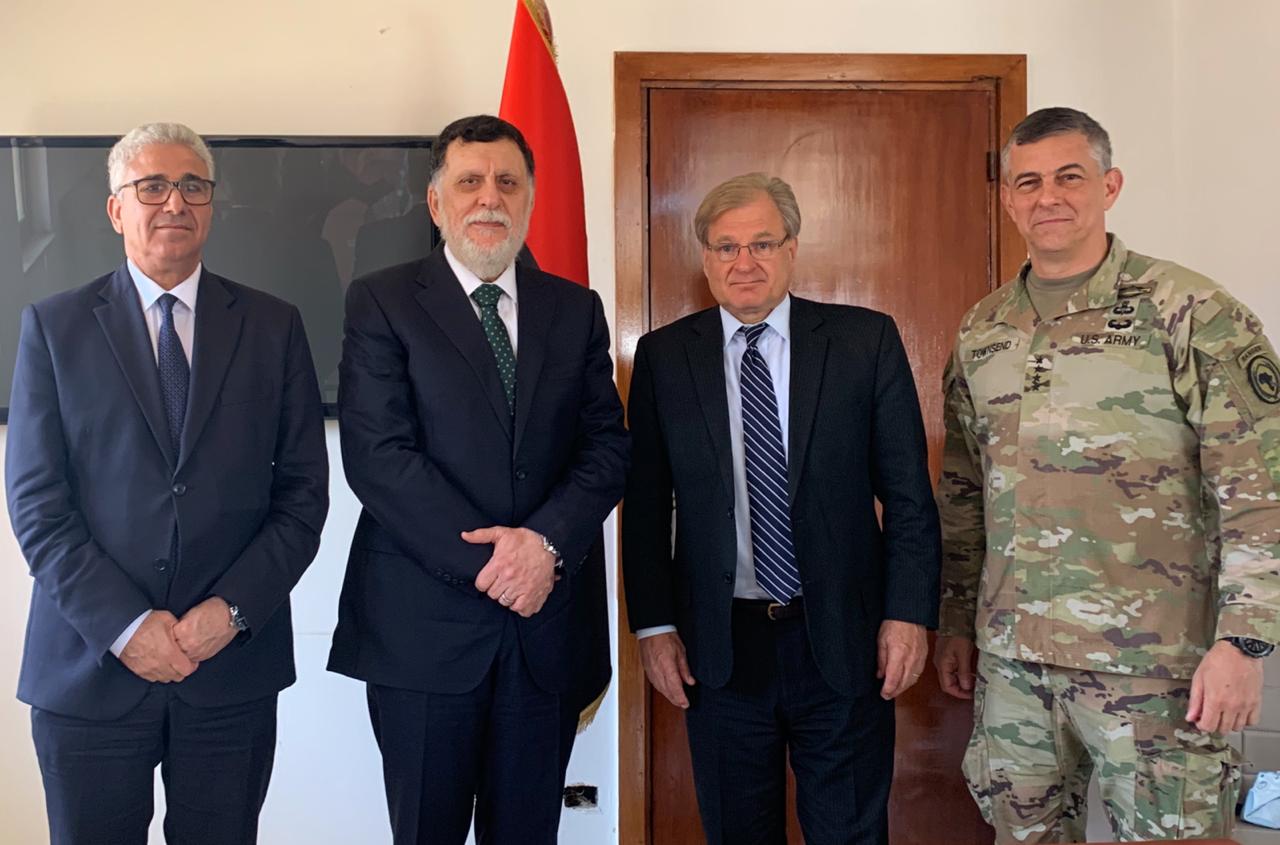
U.S. maintains Libya needs political process to end conflict

The United States on Monday emphasized that Libya’s peace process must be achieved through a political process and not through conflict.
The U.S. position was reaffirmed when a delegation, which included U.S. Ambassador to Libya Richard Norland and U.S. Africa Command (AFRICOM) commander General Stephen J. Townsend, met with Libyan Prime Minister Fayez al-Sarraj in Zuwara, Libya.
The meeting focused on the need for an immediate ceasefire and an end to offensive combat operations by all parties, according to a statement on AFRICOM’s website.
“The current violence fuels the potential resurgence of ISIS and Al Qaeda in Libya, is further dividing the country for the benefit of foreign actors, and prolongs human suffering. External actors should stop fueling the conflict, respect the UN arms embargo, and uphold commitments made at the Berlin Summit,” Norland said.
General Townsend spoke about the dangers of an escalation of the conflict, the dangers posed by Russian-sponsored Wagner operations, and the potential of terrorist groups to exploit the continued conflict for recruitment or attacks.
“We emphasized to the Libyan delegation that all sides need to return to UN-led ceasefire and political negotiations because this tragic conflict is robbing all Libyans of their future,” Townsend said.
The statement added that the United States will continue engaging both the United Nations-backed Government of National Accord and the Libyan National Army with a view to ending the conflict.
Monday’s meeting, the latest meeting in as many months between the three, came in the wake of Egyptian President Abdel Fattah al-Sisi warning that Egypt could intervene militarily if the GNA continued its advance towards the city of Sirte, which is located east of the capital Tripoli.
Libya has been in turmoil since Khalifa Haftar’s Libyan National Army (LNA) launched a military campaign in April last year to take over Tripoli where the UN-backed government is based. However, in recent weeks, with the support of Turkish forces, the GNA pushed back the LNA from Tripoli and pledged to take over Sirte.
The offensive triggered the latest outbreak of violence in the country since the toppling of Muammar Gaddafi in 2011.






